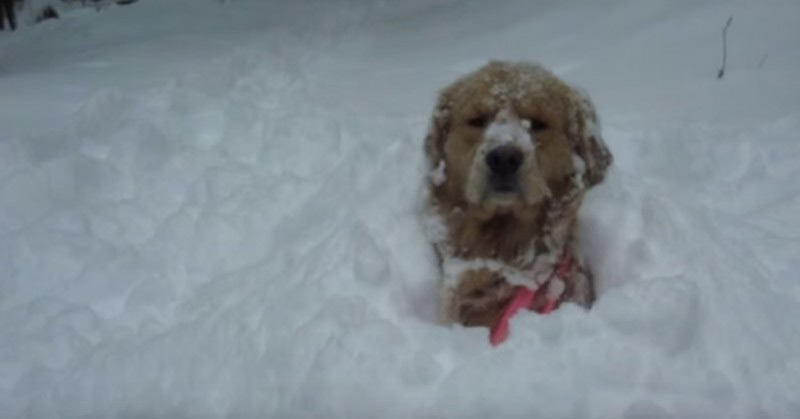Here is a video of dogs being all hyped up in the snow. They all just seem to be in their element! As a responsible owner however, you need to be extra careful during winter. Exposure to winter’s dry, cold air and snow can cause a lot of problems for your pooch.
Apply petroleum jelly onto your dog’s paw pads before going outside to protect from salt and various chemical agents. Booties provide more coverage and can also prevent sand and salt from getting between bare toes and causing irritation. Some dogs are not comfortable with having their paws handled so before winter comes, make foot-wiping a part of its daily routine. When you get home from your walk, towel-dry your pet as soon as possible.
Dogs like to eat snow. No one knows why this is but when they see snow, they will most likely go in for a lick. Freshly fallen snow is safe but the old slushy snow may be polluted so keep an eye on what your dog is doing.
You may wish to feed your pet a little bit more during cold weather months because animals burn off extra energy by trying to stay warm. Owners also tend to think dogs are more likely to get dehydrated in hot weather but this is not true. Winter can also bring very dry air and dogs lose a lot of their body moisture through their breath. Since you are not feeling the heat as much, it’s easy to forget that your dog needs to stay hydrated so make sure to provide it a ready supply of water.


